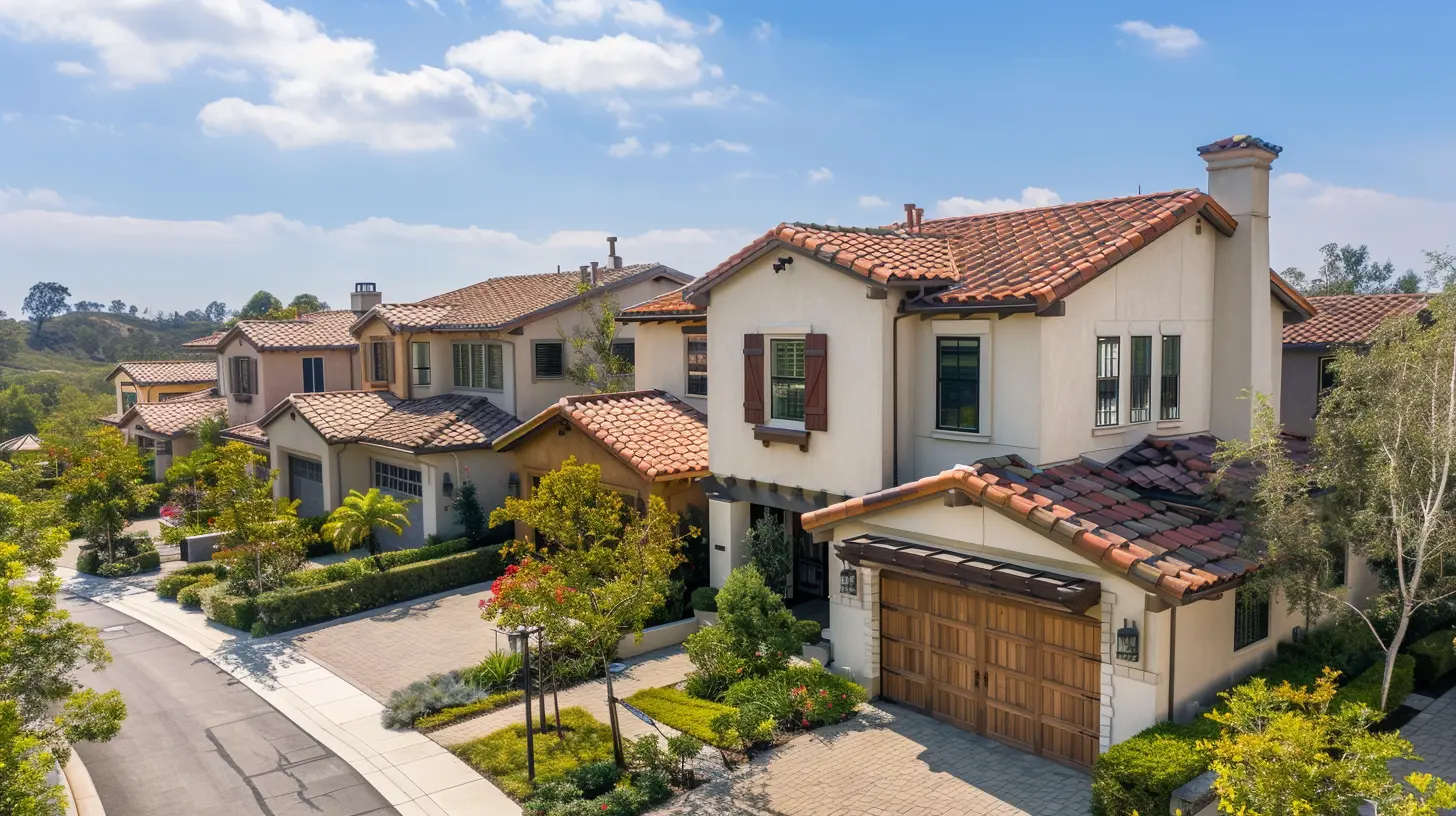Pros and Cons of Buying a Home in an HOA Community
1 June 2025
If you’ve spent any time house hunting, odds are you’ve come across a property in an HOA (Homeowners Association) community. These neighborhoods are relatively common, and they can offer tons of perks—but they also come with their own unique quirks. Some buyers absolutely love the structured living environment, while others feel like it cramps their style. So, what gives? Should you embrace the HOA life or steer clear of it altogether? Let’s dive deep into the pros and cons of buying a home in an HOA community so you can make an informed choice.
What Exactly Is an HOA?
Before we get into the nitty-gritty, let’s clarify what an HOA actually is. A homeowners association is essentially an organization that governs a neighborhood or residential community. When you buy a home in an HOA community, you automatically become a member of that association. HOAs collect fees (yep, those infamous HOA dues) to maintain shared spaces, enforce rules, and, in many cases, make life easier for residents.However, the experience of living in an HOA community varies greatly—it can feel like being part of a supportive club or, to some, like living under a watchful eye. Let’s weigh the pros and cons to see which side you land on.
The Pros of Buying a Home in an HOA Community
1. Well-Kept Neighborhoods
One of the biggest perks of living in an HOA community is the visual appeal. HOAs typically enforce rules to maintain the neighborhood’s aesthetics. Think manicured lawns, clean sidewalks, and uniformly trimmed hedges. If you cringe at the thought of a neighbor parking their rusty camper on the front lawn or letting their grass turn into a jungle, an HOA could be a dream come true.It’s kind of like living in a neighborhood that’s always Instagram-ready. There’s a certain pride that comes from living in a tidy, well-organized community. Plus, if you're planning to sell in the future, curb appeal can make a big difference in property value.
2. Access to Amenities
Many HOA communities offer attractive amenities that you might not otherwise get in a typical neighborhood. Swimming pools, tennis courts, fitness centers, clubhouses—it’s like having a mini resort just steps from your front door. And because the costs for maintaining these facilities are shared, you don’t have to foot the bill alone.Think about it: Why pay for an expensive gym membership when you’ve got one included in your HOA fees? It’s pretty convenient and cost-effective if you actually use the amenities.
3. Increased Property Value
Here’s the thing: HOAs are all about maintaining standards. By enforcing rules and keeping the community well-maintained, they help protect—and even boost—property values. This can be a major win if you’re thinking long-term.In neighborhoods without an HOA, you might have to worry about a neighbor’s peeling paint or a cluttered yard dragging down the value of your home. In an HOA community, those issues are less likely to pop up. It’s a built-in layer of protection for your investment.
4. Sense of Community
Living in an HOA often fosters a sense of belonging. Many communities host events, like holiday parties, block parties, or neighborhood meet-ups. It’s a great opportunity to get to know your neighbors and build relationships.Some HOA communities even have social media groups or newsletters to keep residents connected. If you value that kind of camaraderie, this could be a big plus.
The Cons of Buying a Home in an HOA Community
1. Monthly HOA Fees
Let’s talk money. One of the biggest downsides to living in an HOA is the mandatory fees. These dues can range anywhere from $50 to several hundred dollars a month, depending on the neighborhood and the amenities offered.And here’s the kicker: The fees aren’t optional. Even if you don’t use the pool or attend community events, you’re required to pay your share. So, if your budget is already stretched thin, HOA fees could be a dealbreaker.
2. Strict Rules and Regulations
Okay, this is where some people feel like HOAs cross the line. To keep the community looking nice, HOAs enforce rules—sometimes to a fault. These rules can cover everything from the color you’re allowed to paint your front door to how high your grass can grow.If you’re the type who values freedom and dislikes being micromanaged, this can feel suffocating. Want to park your project car in the driveway? Sorry, not allowed. Want to put up a funky mailbox? Better check the HOA guidelines first. It’s like having a landlord, even though you own your home.
3. Special Assessments
As if monthly dues weren’t enough, some HOAs impose special assessments to cover unexpected expenses. For example, if the community pool needs major repairs or the roads need repaving, the HOA might bill each resident for their share of the cost.Special assessments can be pricey, and the timing isn’t always convenient. It’s like getting hit with a surprise bill just when you thought your finances were under control. Ouch.
4. Potential Conflicts with the HOA Board
HOAs are run by a board, typically made up of residents. While this sounds great in theory, it can lead to issues in practice. Not everyone agrees on what’s best for the community, and, unfortunately, some HOA boards can be a little… overbearing.If you ever find yourself at odds with the board over a rule or decision, the experience can be frustrating—think of it like clashing with an overly strict boss. In extreme cases, conflicts can escalate into legal battles. Definitely not a scenario anyone wants to deal with.
5. Lack of Privacy
Living in an HOA often means living under a microscope. Rules aside, some HOAs conduct regular inspections to ensure everyone is complying. This level of oversight can feel intrusive, especially if you’re a more private person.It’s kind of like having a nosy neighbor who’s constantly checking on you—but with actual authority to back it up. For some people, that’s a dealbreaker.
How to Decide If an HOA Community Is Right for You
When it comes to deciding whether to buy a home in an HOA community, it all boils down to your priorities and personality. Ask yourself:- Are you okay with paying monthly HOA fees?
- How do you feel about rules? Are you flexible or fiercely independent?
- Do you see value in amenities like pools and fitness centers?
- Can you handle dealing with a board that enforces regulations?
Ultimately, the decision comes down to trade-offs. If you love the idea of a clean, organized neighborhood with shared perks, an HOA could be a great fit. But if the thought of someone telling you how to live makes your blood boil, it might not be worth the hassle.
Final Thoughts
Buying a home is one of the biggest decisions you’ll ever make, and choosing whether to live in an HOA community is a key part of that process. There are undeniable benefits, like well-maintained neighborhoods, increased property value, and access to amenities. But there are also drawbacks, like fees, rules, and potential conflicts.The trick is to weigh the pros and cons carefully. What works for one buyer might be a nightmare for another. At the end of the day, it’s your home and your happiness that matter most. Take your time, do your homework, and choose what feels right for you.
all images in this post were generated using AI tools
Category:
Hoa GuidelinesAuthor:

Lydia Hodge
Discussion
rate this article
3 comments
Ember Sawyer
This article provides a well-rounded view of HOA communities, highlighting both benefits like amenities and maintenance, alongside potential drawbacks such as fees and restrictions. A thoughtful read for prospective buyers!
June 15, 2025 at 3:49 AM

Lydia Hodge
Thank you for your thoughtful comment! I'm glad you found the article balanced and helpful for prospective buyers.
Ezra McVey
Great insights! Weighing HOA pros and cons helps ensure your home choice aligns with your lifestyle.
June 6, 2025 at 4:48 AM

Lydia Hodge
Thank you! I'm glad you found the insights helpful for making informed decisions about HOA living.
Katie Price
While HOA communities offer appealing amenities and maintenance, potential buyers must weigh these benefits against restrictions and fees. Understanding the balance between community standards and personal freedom is crucial for making an informed home-buying decision.
June 1, 2025 at 8:13 PM

Lydia Hodge
Absolutely, finding the right balance between amenities and restrictions is key for potential buyers in HOA communities. It's essential to evaluate both sides before making a decision.



